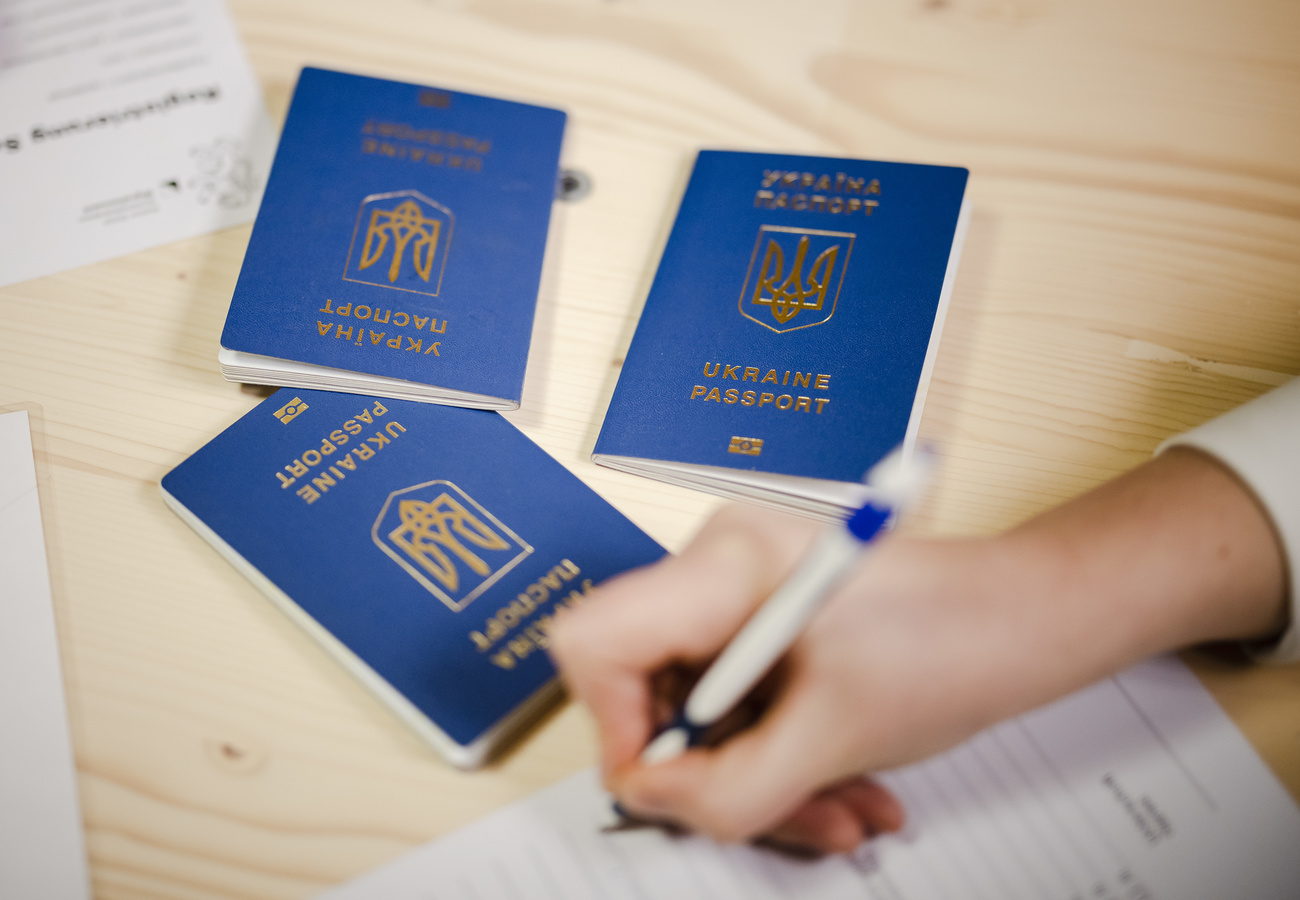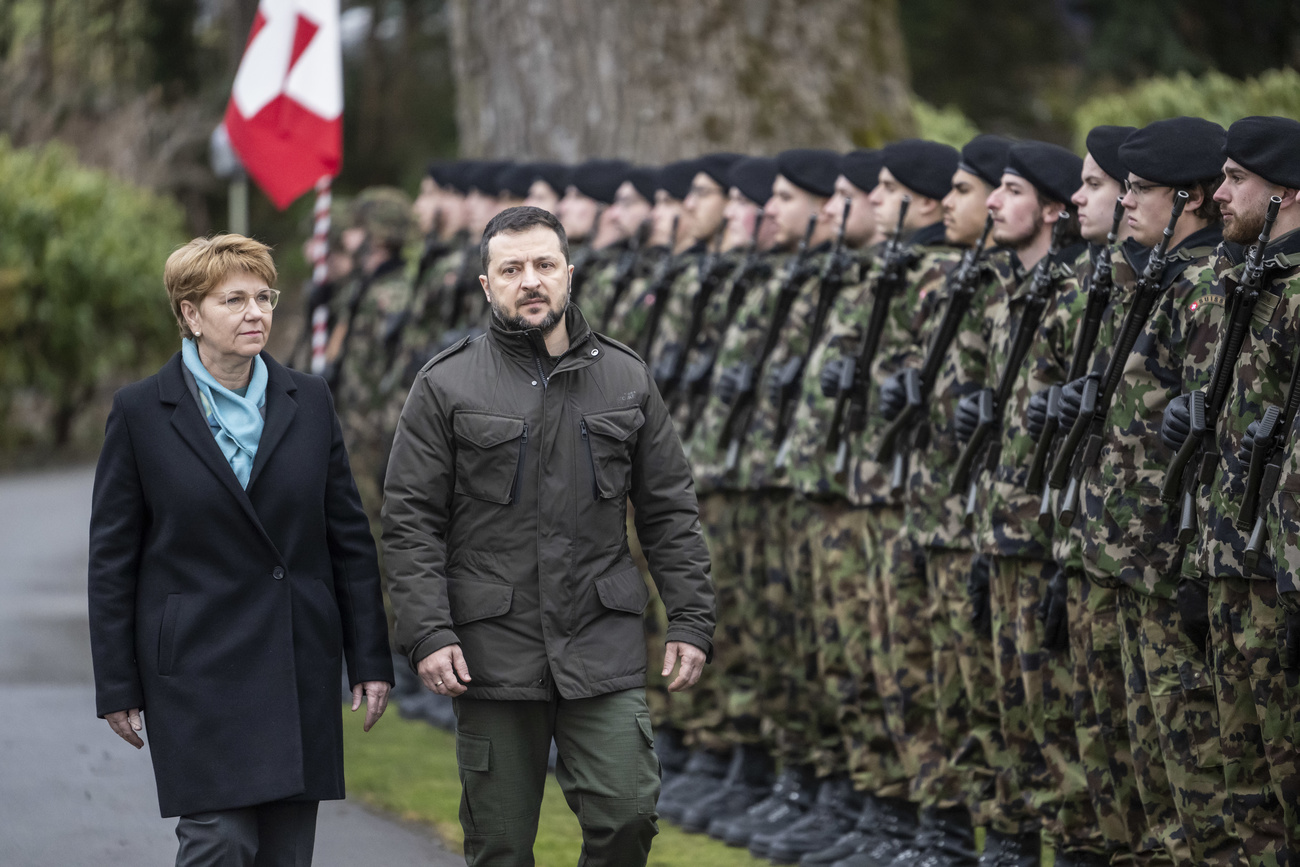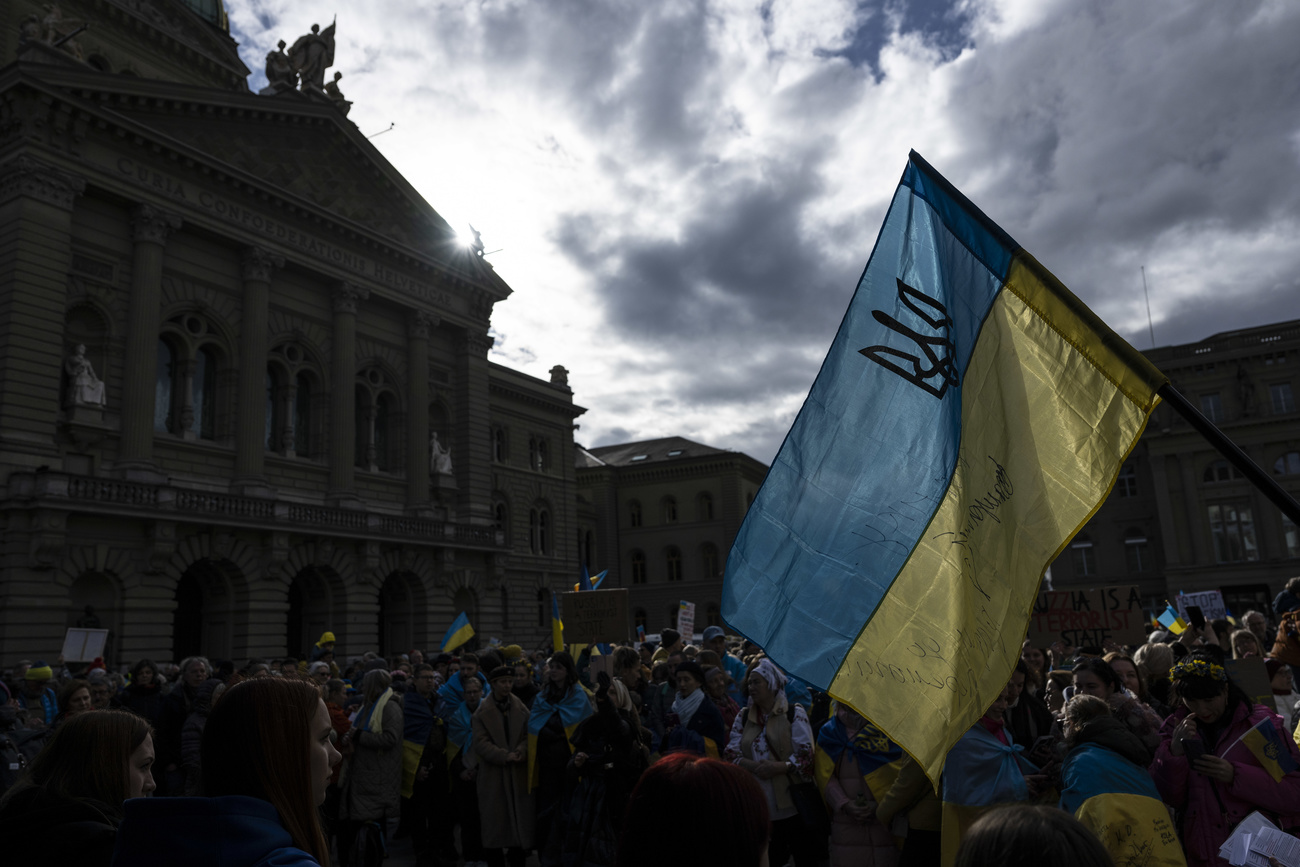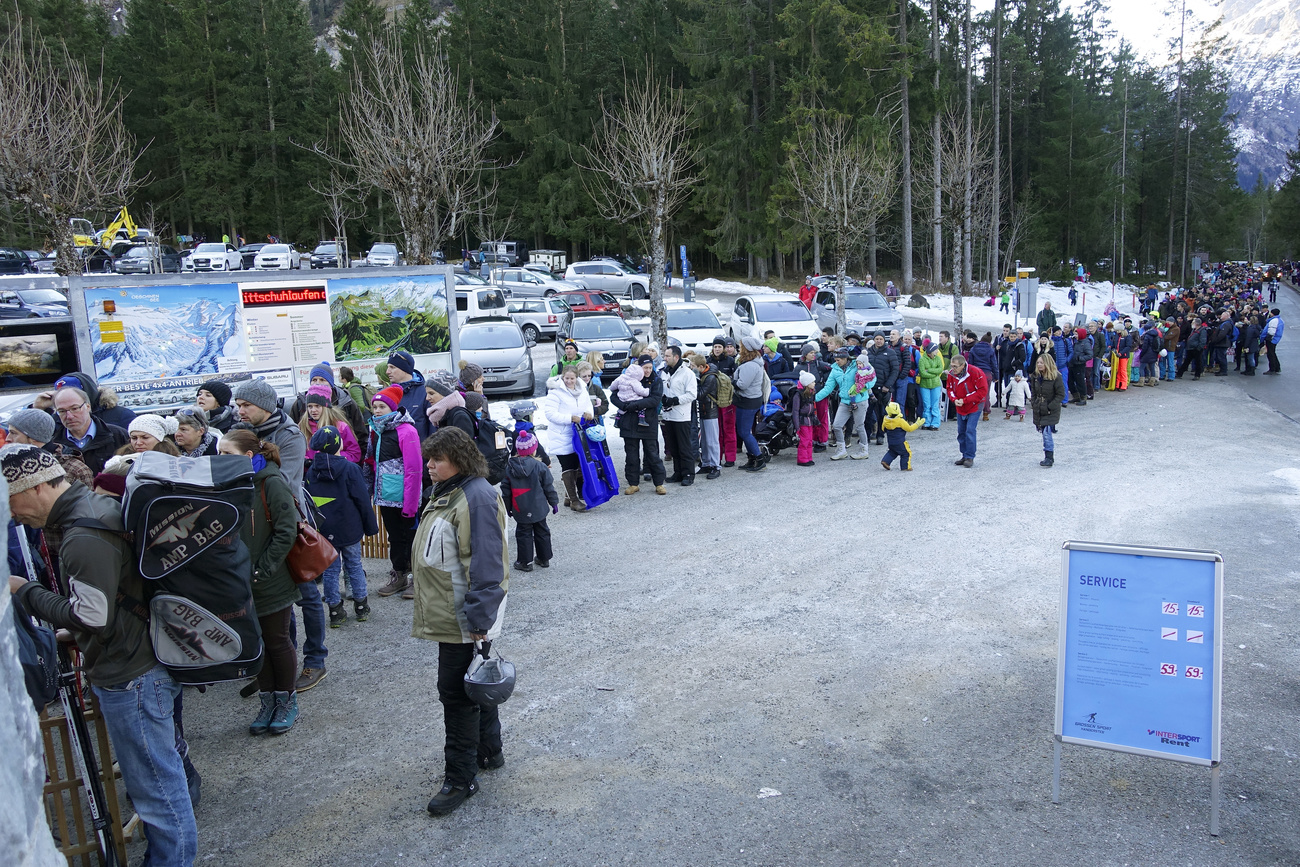Do Ukrainian refugees have a secure future in Switzerland?

Since the start of the war, Switzerland has fast-tracked asylum claims from Ukrainian refugees but is now rejecting claims at a higher rate than ever before.
Last November, Ukrainian refugees in Switzerland were able to breathe a sigh of relief when the government extended the special protectionsExternal link they have enjoyed since March 2022 to March 2025. The “protection status S” entitles them to live and work in Switzerland as well as access social welfare. This special status also means they did not have to go through the conventional asylum procedure and were fast-tracked as refugees, provided they were residents in Ukraine before February 24, 2022, and had already entered Switzerland.
On July 31, the Swiss migration authority tweeted that 66,182 Ukrainians currently possessed a valid status S. However, the post also revealed that 26,392 status S permits had been terminated since they were first issued in March 2022. According to the State Secretariat for Migration (SEM), the vast majority of refugees either voluntarily renounced their S permits or left Switzerland.
Only slightly over a hundred have had their S status revoked. The government has the right to revoke the S permit if holders change their place of residence to a third country and obtain legal residence rights there. In addition, the permits can be revoked if Ukrainians are found to have stayed in Ukraine for more than 15 days per quarter (this is waived if they can prove they were preparing for permanent return to Ukraine). Statistics from the United Nations High Commissioner for RefugeesExternal link (UNHCR) show that 63.1% of all Ukrainians who ever applied for asylum or temporary protection in Switzerland are currently registered in the country as of July 4. According to the SEM, the protection rate for people fleeing Ukraine is 89.3% so far this year, 95.2% in 2023 and 98.6% in 2022.
Rise in rejection rates
Besides revoking S permits, the migration authority can also reject asylum application from Ukrainians. So far, SEM has refused protection status S to about 2,500 Ukrainians since the start of the war in February 2022. The rejection rate is increasing.
Daniel Bach, spokesperson for the SEM, told Swiss public television, RTS, on Sunday that many Ukrainians now come to Switzerland from other European countries and not directly from Ukraine. This is one of the main reasons why they do not meet the criteria necessary for obtaining an S permit. Why are Ukrainians in safe countries in Europe trying their luck in Switzerland?
“It’s possible for people who have already been granted protection in another country to submit an application in Switzerland for various reasons, for example because family members live here. The SEM then clarifies this and, depending on the case, refers to this existing protection,” says Lionel Walter, spokesperson for the Swiss Refugee Council, by email. “This is not unusual and also happens in the procedures of other countries of origin. In our view, it’s important that people have access to protection in a country that respects their fundamental rights.”
According to the Swiss Refugee Council, Switzerland is not a more popular destination than the rest of Europe, since the protection status is similar. Its research also shows that the choice of destination is not dictated only by the legal framework in force, but rather by cultural proximity, language, communities and the presence of relatives.

More
How two years of war in Ukraine have marked Switzerland
“The broader reason is a simple and brutal one: the war in Ukraine continues and the current situation is not better than a year ago and is probably more severe,” Sasha Volkov, board member and spokesperson for the Ukrainian Association in Switzerland, told SWI swissinfo.ch.
Volkov was in Ukraine a little over a week ago and stayed with family near Kyiv for two weeks. According to him, power shortages are the norm and electricity supply is intermittent, with six hours of power cuts for three hours of electricity in the capital region.
“People considering returning to Ukraine see that they will need generators if they want to return to their homes and the cost of running the generators is more expensive than electricity in Switzerland. They have no money to return to Ukraine and are reluctant to stay where they are because solidarity for Ukrainians is not as high as at the beginning of the war,” he says.
Integration and repatriation plans
The Swiss government has acknowledged that Ukrainians will not be returning home anytime soon. Last November, it set itself the ambitious target of integrating 40% of those here into the workforce by the end of 2024 (currently 25%). To this end, CHF3,000 ($3,534) has been allocated per person, mainly to pay for languages courses. If approved, a proposal from parliament to introduce online registration instead of work permits should also reduce bureaucracy for companies willing to hire Ukrainians.

More
Should Switzerland refuse protection to Ukrainian men of fighting age?
However, the shadow of uncertainty still hangs over Ukrainian refugees because the S status (valid until March 2025 for now) was never intended to allow a long-term stay in Switzerland. Last September, the Swiss government shared its provisional strategy to facilitate the return of Ukrainian refugees once the S status is eventually lifted. It is estimated that 80% would leave voluntarily because the men of the household are in Ukraine. The report recommends allowing six to nine months for refugees to plan their departure with a suggested financial incentive of CHF1,000-CHF4,000 per person, with more money for those who leave earlier.
However, the longer the stay in Switzerland, the less likely a person will be willing to leave of their own free will, the repatriation plan acknowledges. Furthermore, after five years of uninterrupted stay, they could obtain a Swiss B permit, that is normally valid for five years or in the case of Ukrainian refugees until the temporary protection is lifted.
A survey published by the UNHCR, SEM and market research firm Ipsos last DecemberExternal link also seems to indicate that it will not be easy to repatriate Ukrainian refugees voluntarily. A third of Ukrainian refugees surveyed did not wish to return to their homeland, with 40% undecided.
“Some are giving up on Ukraine. It’s unavoidable the longer the war lasts,” says Volkov of the Ukrainian Association in Switzerland.
Edited by Mark Livingston/ts
This article has been updated on August 16 for clarity at the request of State Secretariat for Migration.

In compliance with the JTI standards
More: SWI swissinfo.ch certified by the Journalism Trust Initiative








You can find an overview of ongoing debates with our journalists here . Please join us!
If you want to start a conversation about a topic raised in this article or want to report factual errors, email us at english@swissinfo.ch.